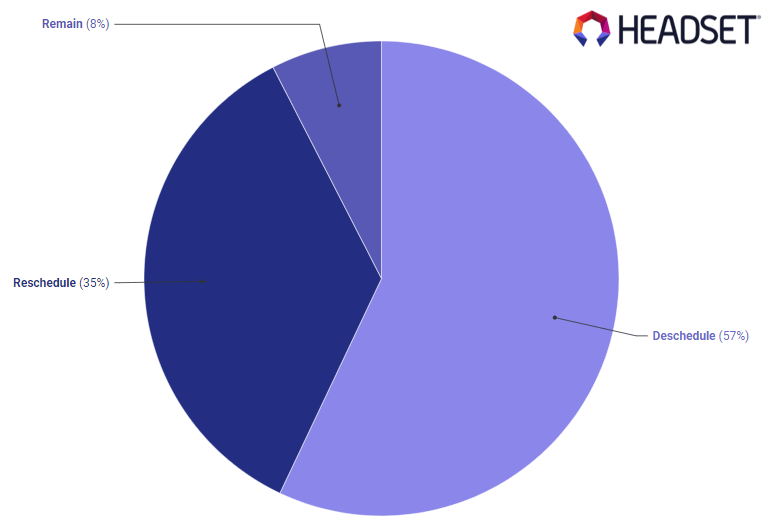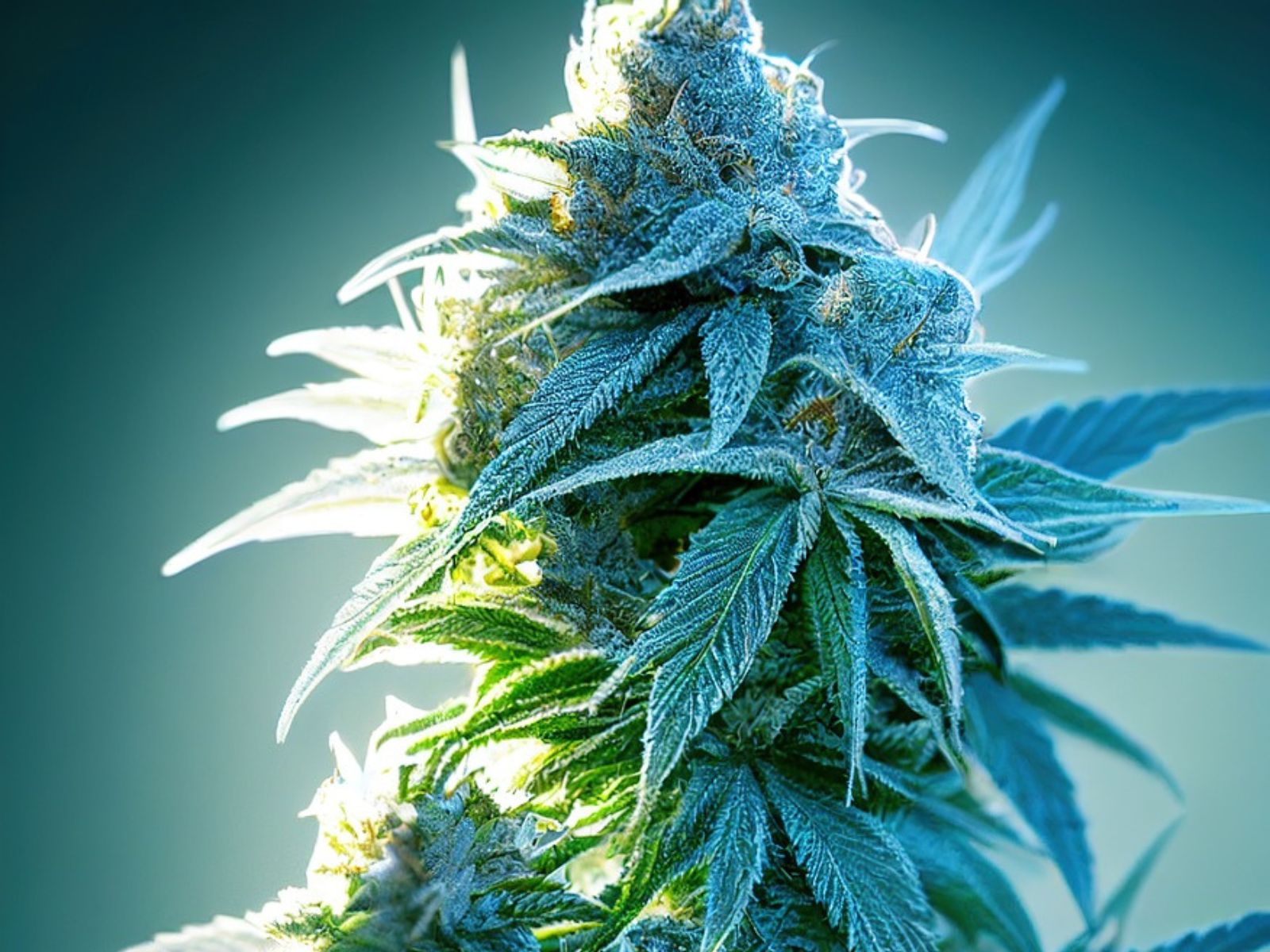United States President Joe Biden announced earlier this year that he would push for rescheduling cannabis from its current status as a Schedule I controlled substance to Schedule III. Part of the process to change cannabis’ federal status involved accepting comments from the public about the proposal.
The window in which to comment lasted sixty days, with the deadline expiring on July 22nd, 2024. Over 43,000 public comments were received during the period for the Department of Justice’s proposal to reclassify cannabis from a Schedule I to a Schedule III substance in the Controlled Substances Act.
According to the National Cannabis Industry Association (NCIA), in conjunction with cannabis data company Headset, an overwhelming majority of the comments received were favorable to changing cannabis’ federal classification.
“An overwhelming 91% of comments were submitted in favor of the rescheduling proposal or making it legal under federal law, according to an analysis of the data conducted by Headset. The analysis found that among those supporting a change 56% advocated for complete descheduling of cannabis and 35% supported rescheduling to a less restrictive category.” the entities stated in a press release.
“It’s clear: decades of scientific data, medical literature, and the experience of millions of American patients using it legally under the care of a physician all show that marijuana absolutely does not belong in Schedule I of the CSA. Reclassifying marijuana to Schedule III is a positive first step in aligning federal and state law, however, we continue to assert that removing marijuana from the CSA entirely would be the best and most appropriate action.” NCIA stated in its public comments.
“We again emphasize that any reclassification of marijuana should be accompanied by guidance to ensure successful state programs are not disrupted by inappropriate federal enforcement of the CSA. Public health and safety are best served by the elimination of the illicit market and the regulation of marijuana and marijuana products. We urge the relevant departments to move expeditiously in publishing the final rule related to this topic,” NCIA’s comments conclude.

The United States adult-use cannabis industry has generated over $20 billion in total tax revenue since the first legal recreational cannabis purchase was made in Colorado on January 1st, 2014 according to a report by the Marijuana Policy Project.
“Through the first quarter of 2024, states have reported a combined total of more than $20 billion in tax revenue from legal, adult-use cannabis sales. In 2023 alone, legalization states generated more than $4 billion in cannabis tax revenue from adult-use sales, which is the most revenue generated by cannabis sales in a single year.” the Marijuana Policy Project stated in a press release.
79% of people living in the United States lived in a county with at least one regulated cannabis dispensary according to an analysis by the Pew Research Center. The Pew Research Center also found the following:
- 74% of people in the U.S. live in a state where recreational or medical cannabis is legal
- There are nearly 15,000 cannabis dispensaries in the U.S.
- California has the most overall dispensaries (3,659)
- Oklahoma has the most dispensaries per capita (36 dispensaries for every 100,000 residents)
Total legal cannabis sales in the United States are expected to reach $31.4 billion in 2024 according to a recent analysis by Whitney Economics. Additionally, leading cannabis jobs platform Vangst, in conjunction with Whitney Economics, estimates that the legal cannabis industry now supports 440,445 full time-equivalent cannabis jobs in the United States.
Whitney Economics also projects the following legal cannabis sales figures in the United States for the coming years:
- 2024: $31.4 billion (9.1% growth from 2023)
- 2025: $35.2 billion (12.1% growth from 2024)
- 2030: $67.2 billion
- 2035: $87.0 billion
The emerging legal cannabis industry in the United States is projected to add roughly $112 billion to the nation’s economy in 2024 according to an analysis by MJBiz Daily. The projection is part of the company’s 2024 MJBiz Factbook.
“The total U.S. economic impact generated by regulated marijuana sales could top $112.4 billion in 2024, about 12% more than last year,” MJBiz stated in its initial reporting.

